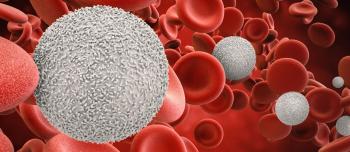In a December 2009 study, researchers in China evaluated the efficacy and safety of pegylated interferon (PEG-IFN) alpha-2a monotherapy in Chinese hemophilia patients co-infected with the human immunodeficiency virus (HIV) and the hepatitis C virus (HCV). HCV can cause liver cancer, cirrhosis, end-stage liver disease and liver failure. The progression to end-stage liver disease can be accelerated in co-infected individuals. The lead investigator of the study was Dr. R.F. Zhang, Shanghai Public Health Clinical Center, Fudan University School of Medicine in Shanghai.
The patients in the study were also undergoing highly active antiretroviral drug therapy (HAART), a combination of drugs that curbs viral replication and boosts CD4+ T cell numbers in HIV patients.
The study included 22 hemophilia patients (average age of 36 years), all of whom were given weekly subcutaneous injections of PEG-IFN alpha-2a for 48 weeks. Results showed that nine patients (41%) achieved undetectable HCV levels for six months after completing therapy, achieving what is called a sustained virological response (SVR). The patients’ genotype, or genetic makeup, predicted SVR. Although SVR is not a true cure--the HCV is often not eradicated from the liver--it is still the goal for clinicians because suppressing the virus indefinitely to undetectable levels decreases the virus’ harmful effects.
“In summary, this pilot study suggests that PEG-IFN alpha-2a monotherapy is efficacious, well-tolerated and safe in the haemophilic patients with HIV/HCV co-infection undergoing HAART. The virological response and adverse events vary in different patients. Thus, anti-HCV treatment in haemophilic patients with HIV infection should be recommended on a case-by-case basis,” concluded investigators. They added that the therapy could be an option in areas with limited resources.
The study, “Efficacy and Safety of Pegylated Interferon Alpha-2a Therapy for Chronic Hepatitis C in HIV-Infected Patients with Haemophilia,” was published online December 20, 2009 in the journal Haemophilia.





